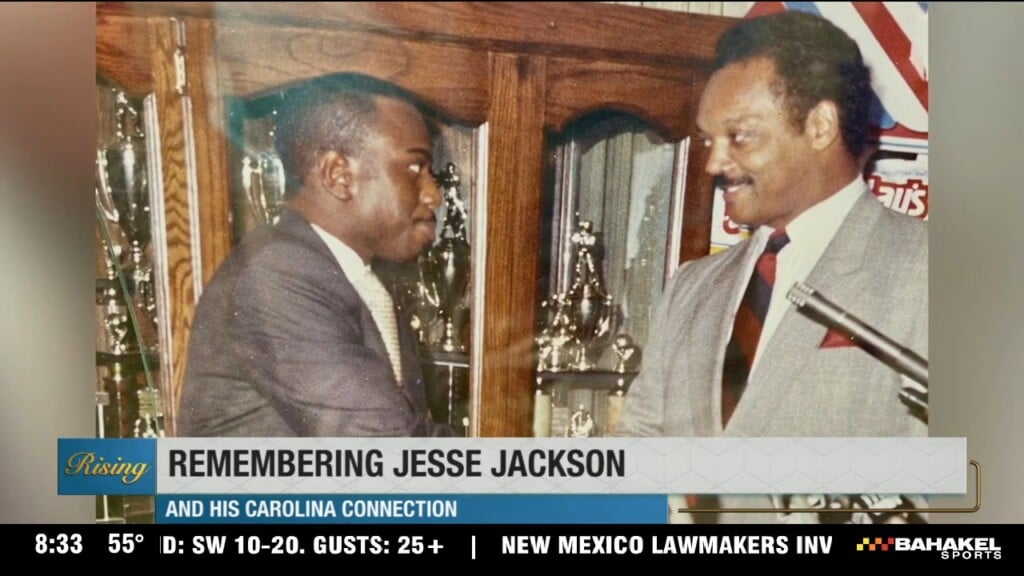RALEIGH, N.C. — A financial carrot for North Carolina to expand Medicaid to hundreds of thousands low-income adults is raising already elevated hopes among Democratic Gov. Roy Cooper and allies that the General Assembly will finally adopt it this year.
But those aspirations remain uncorroborated by GOP leaders who remain wary of expansion or don’t see it happening.
The $1.9 trillion COVID-19 relief package that President Joe Biden signed this month would give North Carolina and 11 other states that haven’t accepted expanded coverage more money to cover traditional Medicaid patients through 2023 if they sign up.
Acceptance of expansion would result in a $1.2 billion net increase in federal Medicaid payments to North Carolina, according to a Kaiser Family Foundation report this week. This includes the state’s 10% share it would pay for the “able-bodied” low-income adults who would qualify for expansion through former President Barack Obama’s health care overhaul law.
“This federal incentives package provides us a incredible opportunity,” said Erica Palmer Smith, director of Care4Carolina, a pro-expansion coalition composed of nearly 90 groups and 200 business, civic and faith leaders.
But Republican Senate leader Phil Berger, a longtime expansion skeptic, said government health care to able-bodied adults, no matter how much money is offered by Washington, provides the wrong type of assistance by encouraging dependence.
“The so-called sweetener is only a short-term sweetener,” Berger told The Associated Press in an interview this week. “I acknowledge that there are some gaps in coverage that need to be addressed, but I think they can be addressed in ways that do not require us to create a whole new level of entitlement in the state of North Carolina.”
Cooper, who has sought expansion since taking office in early 2017, said the incentives in the federal relief bill provide an “open window” to come up with a deal now. The governor said increasing demands for health care during the pandemic and the state’s shift this summer to a managed-care program for most Medicaid consumers make it the best time to act.
“I hope we can have a grand bargain,” Cooper told Politico in an online interview last week. “This moment in time is the time where it can happen.”
Cooper’s optimism comes with efforts by the governor and House and Senate GOP leaders to reset their relationship after two years of vetoes and a budget stalemate that centered on differences over Medicaid. Cooper won reelection in November. Republicans retained House and Senate majorities, but they aren’t veto-proof. Cooper formed a bipartisan task force in December to locate common ground on improving health care access.
The expansion idea advanced through House committees in 2019 but got sidelined during the budget impasse. House Speaker Tim Moore cooled to expansion last year as court rulings set aside work requirements for enrollees in other states.
The funding is an “enticement” but it “is still a short term allocation of money (and) does not address the work requirement,” Rep. Donny Lambeth, a Forsyth County Republican and chief sponsor of expansion legislation in 2019, wrote Thursday in a text message.
“So I don’ t see any renewed interest in (the House) looking at growing the Medicaid program.”
Cooper said “everything is on the table for negotiation,” especially on health care, with Republicans if it means inking expansion. But Berger told the AP that “I can’t think of the thing that the governor could put on the table that would get me to say ‘yes’ to Medicaid expansion. I’m not saying that there’s not anything there, but at this point. I don’t see it.”
North Carolina’s Medicaid program already has 2.3 million enrollees and spent $16.8 billion in federal and state funds last year.
An estimated 372,000 uninsured nonelderly adults in North Carolina would become eligible under expansion, the Kaiser Family Foundation estimated last month. Smith said the number benefitting from expansion could exceed 600,000, with those who’ve lost employers’ insurance during the pandemic also added. Expansion also would create tens of thousands of new jobs generated from the financial influx.
Smith said she was encouraged, even before the relief law was approved, by legislators who want to expand coverage to people who make too much to receive Medicaid now but can’t get premium breaks on the private insurance marketplace.
“We have had really productive conversations with members on both sides of the aisle who want to solve this problem for North Carolina,” Smith said.





